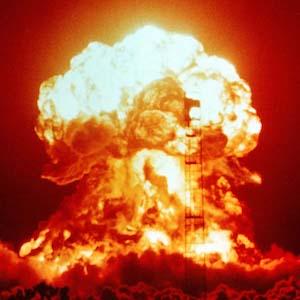It's that time of year again.
The Holiday Season has ended, and society collectively begins its slog through a new year. What better time, then, to scare the living daylights out of everybody?
In what has become an eagerly anticipated tradition, the Bulletin of the Atomic Scientists warns us that our families and children are all moments away from annihilation. The international media uncritically and gleefully reports this nonsense, despite the fact that the Doomsday Clock has been around since 1947. Yet, we're all still here. There must be something wrong with the clock.
This year, we are merely two minutes away from "midnight" (i.e., the Apocalypse), though it's not at all clear what that actually means. We've been two minutes away before, like we were in 1953, when the Bulletin of the Atomic Scientists was not pleased that the U.S. pursued creating a hydrogen bomb. We've also been 17 minutes away from midnight, such as in 1991, when the Cold War ended.
But in all scenarios, no matter how good things might be in the real world, midnight is always just a handful of minutes away. Even if the Prince of Peace himself (obviously, we're speaking of Justin Trudeau) became the benevolent emperor of the world, the Doomsday Clock would still exist. No amount of maple syrup could sweeten the fact that Canada could reign terror on Earth at any moment.
Fearmongering Pays Dividends
And that's the trouble with fearmongering. It works. It makes people famous, it gets politicians elected, and it earns money for activists. Scaring people has a funny way of opening their wallets. On the flip side, there isn't much money in telling everybody to calm down.
The reality is that nuclear war just isn't very likely. The foreign policy doctrine of deterrence actually works. If any country launches a nuclear strike (especially against the United States), that country would be wiped off the map. Russia knows this. China knows this. And even North Korea knows this. The morbid notion of "mutually assured destruction" has kept the peace.
Fully realizing this, the Bulletin of the Atomic Scientists has added more variables to its doomsday calculations. If nuclear war doesn't kill us all, then climate change will. And if climate change doesn't, then technology itself will. No matter what, Homo sapiens is staring into the inky abyss of extinction.
Here at the Council, we thoroughly reject such self-serving pessimism. Instead, we embrace what Stephen Pinker said last year at the Breakthrough Dialogue: "Problems are inevitable. Problems are solvable. Solutions create new problems."
How profound, and how true. Truth, however, is not a path to riches.




